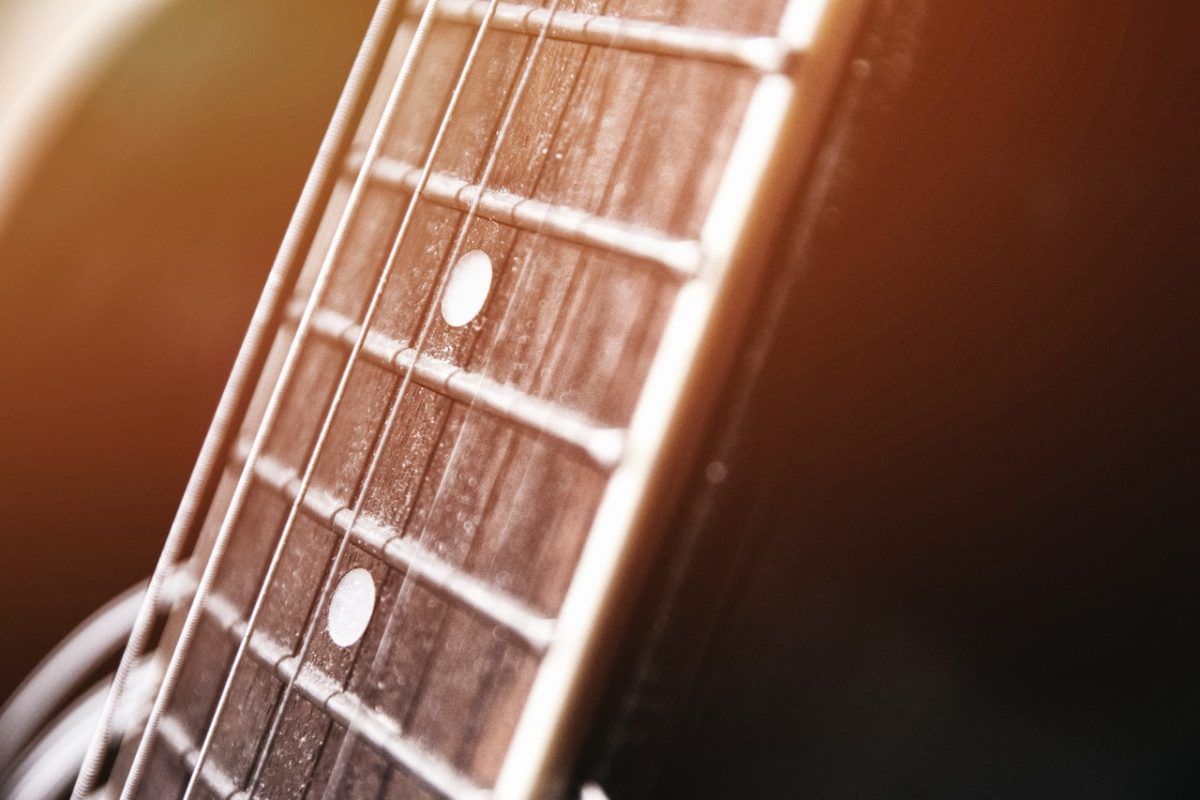Do you have rusty strings? Are you wondering if your guitar will still sound good with corroded strings? Strings can get rusty easily due to many factors, but can you play guitar with rusty strings, and how will it sound? In this article, we’ll cover the causes of steel string rust and corrosion, how to remove it, and how to prevent it. We’ll also provide tips on keeping your strings in good condition. So whether you are a seasoned musician or a new player, this post is for you.
Can you play a guitar with rusty strings? No, it’s not a good idea. Rusty strings increase the likelihood that your instrument sounds terrible, has an uneven tone, or even breaks in the middle of a song, perhaps causing you to cut your fingers.
What causes guitar strings to tarnish?
Guitar strings can develop tarnish over time, affecting their appearance and sound. Tarnish on guitar strings is a result of various factors, including:

Presence of moisture: Moisture is the primary and most typical cause of tarnishing. This is because the strings come into contact with moisture from the air around your instrument or your sweat and oil glands. Some strings have a core wrapped in either nickel or copper wire, where moisture might get trapped. So, over time, they get crusts of stain, moisture, and dirt stuck in them.
Accumulation of dead skin cells, oils, dust, and debris on the strings: The accumulation of dead skin cells, oils, dust, and debris on the strings can also contribute to tarnishing. These contaminants can build up over time and affect the appearance and sound of the strings. Regularly wiping off the guitar strings after playing can help prevent the accumulation of dirt and oils, thus slowing down the tarnishing process.
Storage conditions of the guitar: Storing the instrument in a case can protect it from exposure to high levels of moisture in the air, which can contribute to tarnishing. However, it’s important to maintain a moderate humidity level to prevent other issues, such as cracks in the wood and finish.
Extremely dry environments can be detrimental to the guitar, so it’s recommended to keep the instrument in an environment that is comfortable for humans and not too moist or dry.
AKAI Professional MPK Mini MK3

AKAI Professional MPK Mini MK3
Can you play the guitar with rusty strings?
You shouldn’t play guitar with rusty strings. Rusty strings can have several potential effects on the tone, playability, and overall performance of the instrument.
Rusty strings can significantly impact the tone of a guitar. The rust and corrosion on the strings can cause an uneven tone, loss of brightness, and a generally unpleasant sound. The rust creates friction and inhibits the strings’ ability to vibrate freely, resulting in a muted or dull tone.
Playing with rusty strings can make it more difficult to navigate the fretboard smoothly. The rust causes increased friction and can make it harder for your fingers to glide along the strings, affecting your technique and overall playing experience. Moving up and down the neck may feel sticky or sluggish, making it challenging to play with precision and speed.
When strings are rusty, they become more brittle and susceptible to snapping, particularly if
they have been corroded for an extended period.
Rust weakens the structural integrity of the strings, making them more prone to breakage. When strings are rusty, they become more brittle and susceptible to snapping, particularly if they have been corroded for an extended period. The risk of a string breaking during playing increases, which can be inconvenient and potentially cause injury if the broken string snaps back.
Rusty strings can compromise the sound quality of your guitar, affect your playing experience, and increase the risk of string breakage. Therefore, it is generally recommended to replace rusty strings with fresh ones to maintain optimal sound and playability.

How to prevent guitar strings from rusting
The only way to prevent tarnishing and eventually rust is to consistently clean your strings. If you don’t keep up with maintenance, rust or tarnish will set in, and tension will cause it to break. Here are some techniques to keep your guitar strings playing much longer.
Wash your hand before and after you play
Oils and grime cause rusty strings, so It goes without saying that before you touch a guitar string, you should always wash your hands. Your fingers are always moving and touching things. What you just touched will undoubtedly end up on your guitar string. You should do more than clean your hands and play your guitar after eating a bag of Doritos, for example. It has to be washed with soapy water.
Wipe your guitar’s strings clean
Sweat on the guitar strings may be reduced by wiping them after each play. Also, cleaning it once in a while can help get rid of any moisture that gets stuck in the strings. Finally, since the string is constantly dry, it won’t rust as quickly.
Storing it when not played
The strings on your guitar may be preserved by storing it in its hard case, even if you live in a humid climate. With its help, your guitar string won’t break from the dampness of where it is kept.
Do all guitar strings rust?
Not all guitar strings rust, but the likelihood of rust depends on the type of strings and their composition. The majority of guitars, including acoustic and electric guitars, use strings made from steel, which contains iron and is susceptible to rusting. When exposed to a combination of oxygen in the air and moisture over time, iron undergoes a process called oxidation, resulting in the formation of iron oxide, commonly known as rust.
| Guitar String Type | Rust Resistance | Average Lifespan |
|---|---|---|
| Steel | Prone to rust | 3-4 months |
| Nickel | Tarnishes | 2-6 months |
| Bronze | Tarnishes | 2-3 months |
| Brass | Tarnishes | 2-4 months |
| Coated | Resistant | 3-6 months |
However, it’s important to note that not all discoloration on guitar strings is necessarily rust. Tarnish is a common occurrence on guitar strings, especially those that are copper or nickel-wrapped. Tarnish is a thin, dull layer caused by oxidation and can give the appearance of discoloration on the strings. While tarnish affects the outer layer of the strings, rust penetrates the material and can deteriorate the strings more significantly.
If you want even more tips and insights, watch this video called “How Much Do Rusty, Old Strings Affect Tone?” from Trogly’s Guitar Show YouTube channel.
Frequently asked questions (FAQ)
Do you still have questions? Below are some of the most commonly asked questions about whether you can play the guitar with rusty strings.
Do rusted strings affect guitar sound?
Metal strings will rust much like any other metal. The rusting process is greatly aided by moisture, such as the sweat on your palms (and perhaps your deeply full brow). Corrosion on a string dampens its vibrations, and hence it is sound.
Should you change rusted guitar strings?
Yes. With each performance, sweat, grease, filth, and grime build up on the guitar strings. If you can see rust or a big change in color on the strings, they will break sooner rather than later.
How long do guitar strings take to rust?
If you play your strings like the typical person, they could last you 90 days (about three months). This, of course, depends greatly on your maintenance procedures.
Conclusion
To sum everything up, keeping your strings in good condition helps keep the sound quality of your guitar in tune. For this reason, it’s always advisable to clean the strings regularly. If you notice any rust on the strings or corrosion on them, then it is time for a replacement. In case you do not feel like cleaning and replacing the strings, buy new ones. So, how often do you replace your strings?
And did I cover everything you wanted to know? Let me know in the comments section below (I read and reply to every comment). If you found this article helpful, check out my full blog for more tips and tricks on music production. Thanks for reading, and never stop making music.
Key takeaways
- Tarnish will appear on guitar strings before rust does.
- A fretboard is a neck’s top surface, typically wood.
- Using rusty guitar strings may provide a unique sound, but getting there requires much more effort.
- When playing with old strings, the tone will not improve even after the rust is removed.
- Wooden acoustic guitars and electric guitars’ electronics are both sensitive to humidity conditions.















